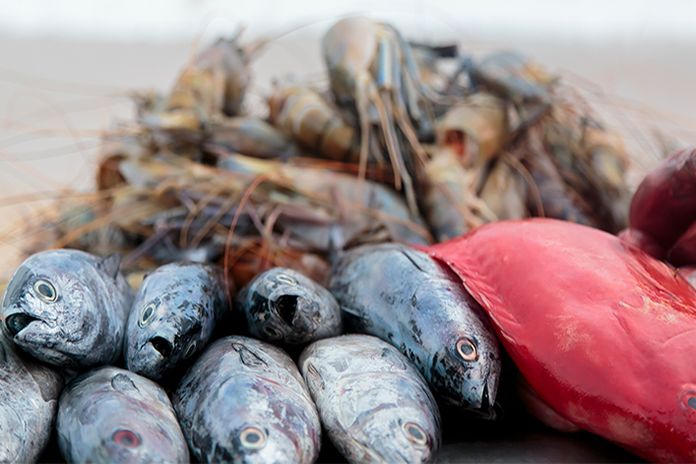GENEVA, Switzerland – The chair of the fisheries subsidies negotiations, ambassador Einar Gunnarsson of Iceland, on 21 December 2023, circulated a new draft text on curbing subsidies contributing to overcapacity and overfishing in order to help members push the negotiations over the finish line at the 13th Ministerial Conference (MC13) in late February 2024.
The document draws on members’ proposals and deliberations, including those from the December “Fish Week” meetings, and is intended to help facilitate intensified negotiations in January.
“We stand at a critical juncture for successfully concluding the second wave of negotiations on fisheries subsidies. It is my hope that this new draft of the disciplines on subsidies contributing to overcapacity and overfishing, which draws on members’ tireless work these past months, will help them to bridge the remaining divides in their positions as we begin our final push to conclude the negotiations in time for MC13,” the chair said upon releasing the text.
“We will resume work right after the holidays, with a ‘fish month’ of continuous negotiations taking us to mid-February, when texts for MC13 need to be ready. We have made good progress this fall in developing ideas and refining possible approaches. Now is the time for members to narrow things down to realistic compromise landing zones that all can accept. While the time is short, I believe we have the elements necessary to reach such an outcome, and all members have indicated that they are ready to work hard,” the chair added.
At the end of the latest Fish Week in early December, members were unable to reach agreement on additional fisheries subsidies disciplines further enhancing those of the Agreement on Fisheries Subsidies, adopted in June 2022 at MC12. However, they affirmed their commitment to ramp up work in the new year to meet the target for concluding the negotiations by MC13, which will take place in Abu Dhabi, United Arab Emirates, on 26-29 February.
In the explanatory note to the revised draft text, the chair underlines that many elements in the text will already be familiar to members, as they have been part of previous drafts and deliberations. This includes the “hybrid approach”, which combines the use of an indicative list of subsidies that contribute to overcapacity or overfishing and a sustainability test for members to demonstrate that measures are implemented for healthy fish stocks. It also includes the “two-tiered approach”, whereby the largest subsidizers would be subject to more scrutiny.
As before, other elements covered by the draft text include a standalone discipline concerning subsidies contingent on fishing or fishing-related activities outside the subsidizing member’s jurisdiction; special and differential treatment provisions; notification and transparency provisions; and an open section with placeholders for any other provisions concerning overcapacity and overfishing.
The disciplines, coupled up with the special and differential treatment provisions in the draft, would allocate members into three groups:
- A group comprising the 20 largest providers of subsidies based on members’ notifications – these members would be subject to the strictest scrutiny, as they would be required to demonstrate the fulfilment of the draft sustainability-based conditionality soon after a new subsidy is in effect;
- Members to be excluded from the core prohibition on subsidies – these would be least-developed country members and developing members with a global share of marine catch not greater than 0.8 percent; and
- Members not falling in either of the other groups – these members would have to demonstrate the fulfilment of the draft sustainability-based conditionality in their regular notifications of fisheries subsidies.
“The core discipline should lead to a meaningful reduction in subsidies contributing to overcapacity and overfishing not only through the statement of prohibition contained in the core discipline, but also through the rigorous committee review procedure that is as central to the working of the discipline as the prohibition itself,” the chair added in the explanatory note.
The draft text can be accessed here. The chair’s explanatory note is available here.








[…] post Fisheries subsidies chair circulates new text in ‘final push’ to reach agreement at MC13 appeared first on Caribbean News […]
[…] post Fisheries subsidies chair circulates new text in ‘final push’ to reach agreement at MC13 appeared first on Caribbean News […]